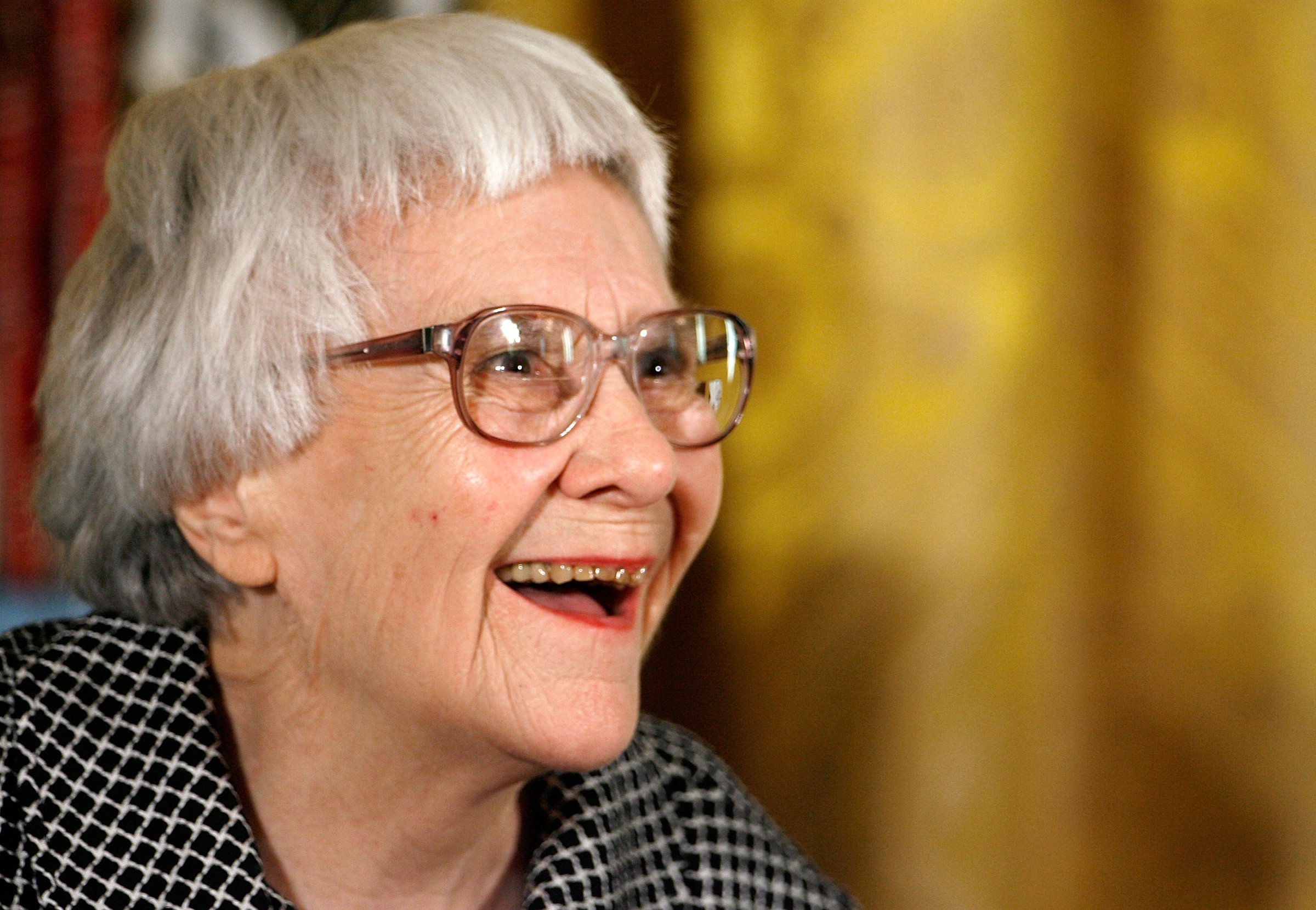
Today, to the delight and total consternation of the literary world, HarperCollins announced that it will publish a previously unknown novel by Harper Lee, the author of the classic To Kill a Mockingbird. The new novel is called Go Set a Watchman, and it deals with the adult life of “Scout” Finch, whom we met Mockingbird as a six-year-old.
When Go Set a Watchman appears in July it will—in subtle but very real ways—realign the literary universe. Among the many things that made Mockingbird special was its singularity: after its release in 1960 Lee never published another book. She’s not the only great one-novel novelist—there’s also Boris Pasternak (Doctor Zhivago), Emily Bronte (Wuthering Heights), Ralph Ellison (Invisible Man), and Margaret Mitchell (Gone with the Wind)—but they’re increasingly rare birds in an age when writers feel obliged to lash themselves to produce the maximum possible verbiage, over the longest possible career, at any cost.
But to clarify, this isn’t Lee’s second novel—it’s her first. She wrote Go Set a Watchman in the mid-1950s, before To Kill a Mockingbird. Watchman is about Scout going back to her hometown of Maycomb, Alabama to visit her father, Atticus. At the time the editor she showed it to was more interested in Scout’s memories of her childhood, and suggested Lee write an entire novel just about that. Needless to say she did.
Now the manuscript of Go Set a Watchman has been rediscovered by a friend of Lee’s and will be published in July, unchanged. “After much thought and hesitation I shared it with a handful of people I trust,” Lee said in a press release, “and was pleased to hear that they considered it worthy of publication. I am humbled and amazed that this will now be published after all these years.” (Some doubt has been cast on whether Lee—who at 88 has had some health problems and resides in an assisted living facility—is entirely competent to approve the book’s publication; it’s been pointed out that this announcement comes shortly after Lee’s sister and attorney Alice, who often guided her professional interests, passed away in November. But if there’s anything opportunistic or untoward in the book’s publication, so far it’s in the realm of speculation only.)
It’s hard to think of a precedent in literary history, though there are parallels—for example, the estate of JD Salinger (another one-novel novelist) will in coming years posthumously publish stories dealing with his most famous characters, Holden Caulfield and the Glass family.
It’s anybody’s guess whether Watchman is another masterpiece, but whatever happens it will irreversibly change the way we read To Kill a Mockingbird. Atticus Finch is one of the great good fathers of American literature, and his relationship with Scout has been a platonic ideal and a template for any number of parents and children. Is Scout now coming back to Maycomb to resolve some lingering, unresolved, previously unknown conflict with him? From now on Mockingbird won’t just be the story of Scout’s childhood, it will be the answer to a question that we never knew had been asked: how did the hero of Go Set a Watchman become the woman that she is?
One mystery that Watchman won’t solve is why Lee never wrote again. That her warm, generous, instantly familiar voice fell silent is one of the enduring enigmas of literary history, and most likely will remain that way. But Watchman will at least tell us whether Lee’s voice was already there, before she wrote Mockingbird, or whether that particular voice arrived to tell that particular story.
As to why it vanished, we may only ever know what Lee said in one of her very few public appearances, when she accepted the Alabama Medal of Freedom in 2001: “Well, it’s better to be silent than be a fool.”
More Must-Reads From TIME
- The 100 Most Influential People of 2024
- The Revolution of Yulia Navalnaya
- 6 Compliments That Land Every Time
- What's the Deal With the Bitcoin Halving?
- If You're Dating Right Now , You're Brave: Column
- The AI That Could Heal a Divided Internet
- Fallout Is a Brilliant Model for the Future of Video Game Adaptations
- Want Weekly Recs on What to Watch, Read, and More? Sign Up for Worth Your Time
Contact us at letters@time.com